Feng Shui: 10 tips for making every room in your home a happier space
Feng Shui is back in fashion, thanks to Meghan Markle's rumoured use of it in Frogmore Cottage. Use these tips to give your home good vibes
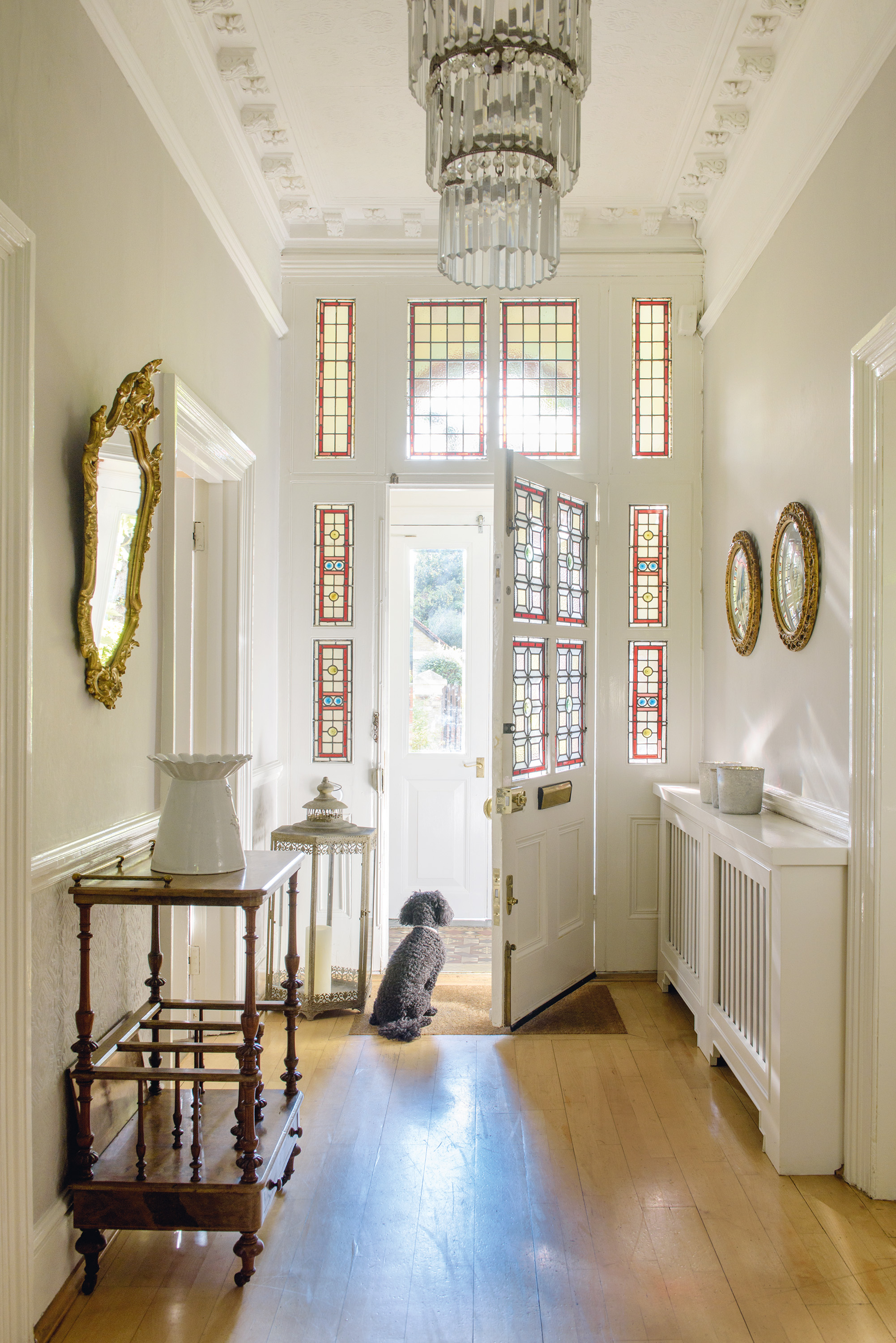
Get small space home decor ideas, celeb inspiration, DIY tips and more, straight to your inbox!
You are now subscribed
Your newsletter sign-up was successful
The ancient art of Feng Shui is credited with helping us arrange our homes for maximum wellbeing and happiness. And it's certainly got some high profile fans, including Meghan Merkle who is claimed to have used it in her renovation of Frogmore Cottage. While many wellbeing crazes focus only on the person, Feng Shui teaches us to pay attention to our living environment and what kinds of stories we are telling with how we organise our homes. We think Marie Kondo is probably a fan. Not to mention Swedish Death Cleaning guru, Margareta Magnusson. So, we thought we'd find out more.
What is Feng Shui's meaning?
Feng Shui translates as 'wind water'; also known as Chinese geomancy, it is claimed to use energy forces to harmonise individuals with their surrounding environment. In other words, it makes your house nice.
There are lots of Feng Shui books and online guides, ranging from practical tips to somewhat esoteric practices that won't be to everyone's taste. The basic principles of Feng Shui, though, most of us will be able to appreciate and find some use for in our homes. These simple tips for every room in the house will cut through the jargon to help you create a home that's relaxed, inviting of more positive opportunities, and that can even help you get more work done.
Get more wellbeing, organising and decluttering hacks in our cleaning pages.
1. Feng Shui rules
Although there are countless Feng Shui rules for different rooms and types of houses, there are a few general rules everyone can follow to improve the overall wellbeing within their home. Follow these, and feel the difference:
- Keep your work area separate from your living area: this is a particularly important rule for those who work from home; if your living space is open plan, separate the work area off with a screen;
- Don't sleep with your head next to the window: your mind and body should be protected from external forces while you sleep;
- Don't align your front door with your back door: any positive energy in your home will flow right back out;
- Avoid locating your living room or bedroom on the lower ground floor: rooms that are below ground level are considered to diminish your energy;
- Avoid living next to a cemetery, for obvious reasons.
2. Feng Shui colours

Why?
Colour is a huge part of Feng Shui, with different colours corresponding to one of the five Feng Shui elements.
How
Use the elements and their corresponding colours below when decorating or accessorising to positively affect the energy in your home:
Wood: green and brown are the colours of positivity, new energy and rebirth; great for revamping spaces that feel tired and full of stale energy.
Fire: red, yellow, pink are the colours of passion and vitality; use whenever you feel lacking in these (bunch of flowers, anyone?).
Water: blue and black are the colours of wisdom; great for meditating (think: bedrooms).
Earth: browns and sandy tones are considered to be grounding and soothing colours; great if you're feeling unbalanced or perfect for a snug or lively child's bedroom.
Metal: white and grey are the colours of concentration and focus; great for study areas or to draw more energy to a space.
Find inspiration in our room colour galleries:
- White living room ideas
- White kitchen ideas
- White bedroom ideas
- Blue room design ideas
- Yellow room ideas
- Orange room design ideas
- Green bedroom ideas
- Pink room ideas
- Grey living room ideas
- Grey bedroom ideas
- Grey hallway ideas
3. Feng Shui decorating
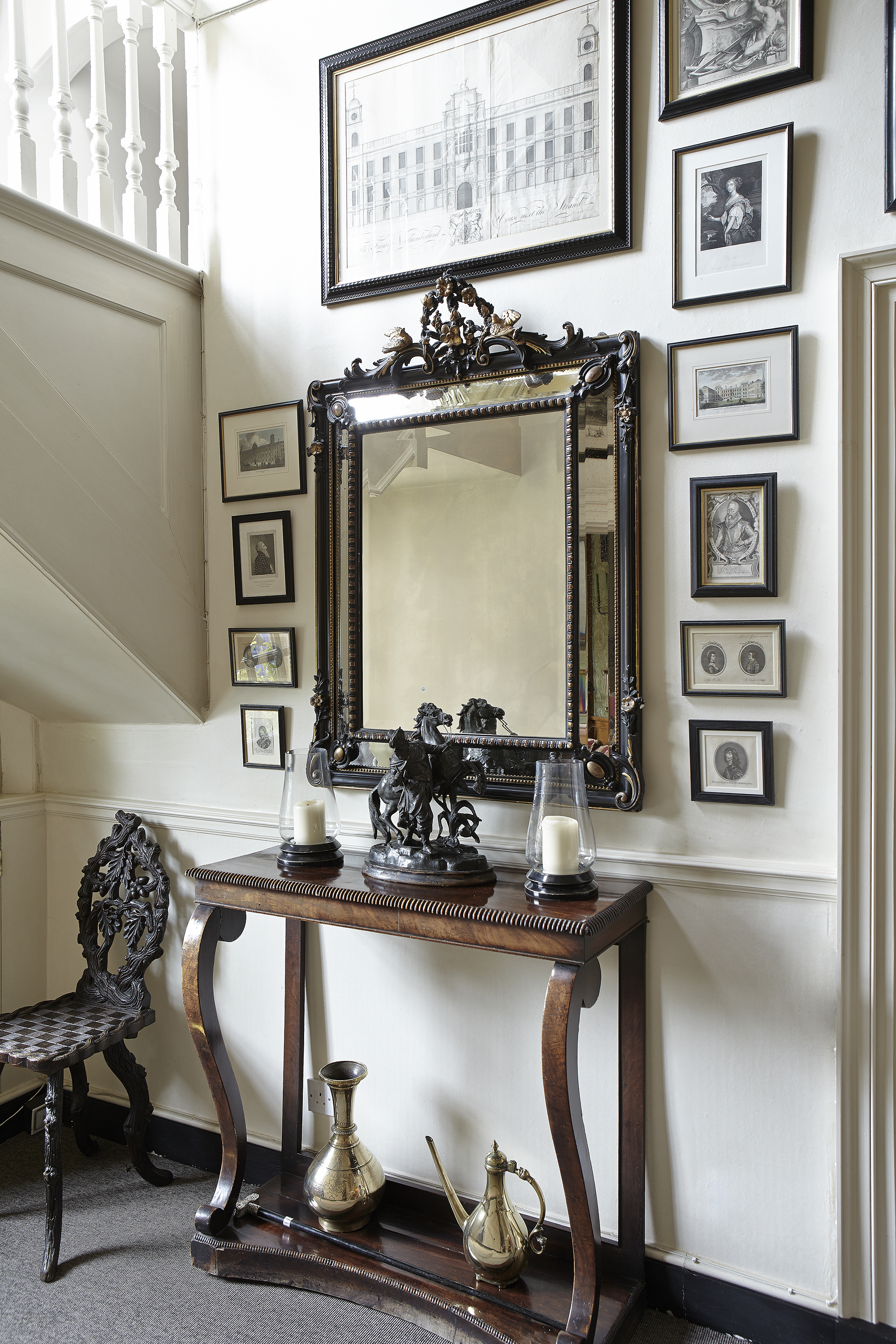
Why?
Feng Shui decorating allows for plenty of individual flexibility: positioning furniture is far more important than individual decorating quirks. However, you can use some decorating elements to enhance the positive energy in your room even more.
How?
Mirrors are very important for those practising Feng Shui, and can be used to redirect energy flows in your home. Use mirrors to enhance the visibility of your front door (the most significant part of your home). Avoid hanging a mirror directly opposite your bed, though.
Lucky objects, or cures: these lucky symbols can be scattered all around your home, and make for great decorative pieces. Animal-shaped objects in particular are thought to bring luck into your homes: a turtle-shaped decoration will bring longevity; a lion will chase away evil spirits; and a golden toad will bring money into the household.
Aim high: Feng Shui is all about spaciousness and light, so, even if you live in a small space, try to visually enhance its height by hanging your art higher and using pendant lights to emphasise space.
4. Feng Shui hallway tips: invite positive energy into your home
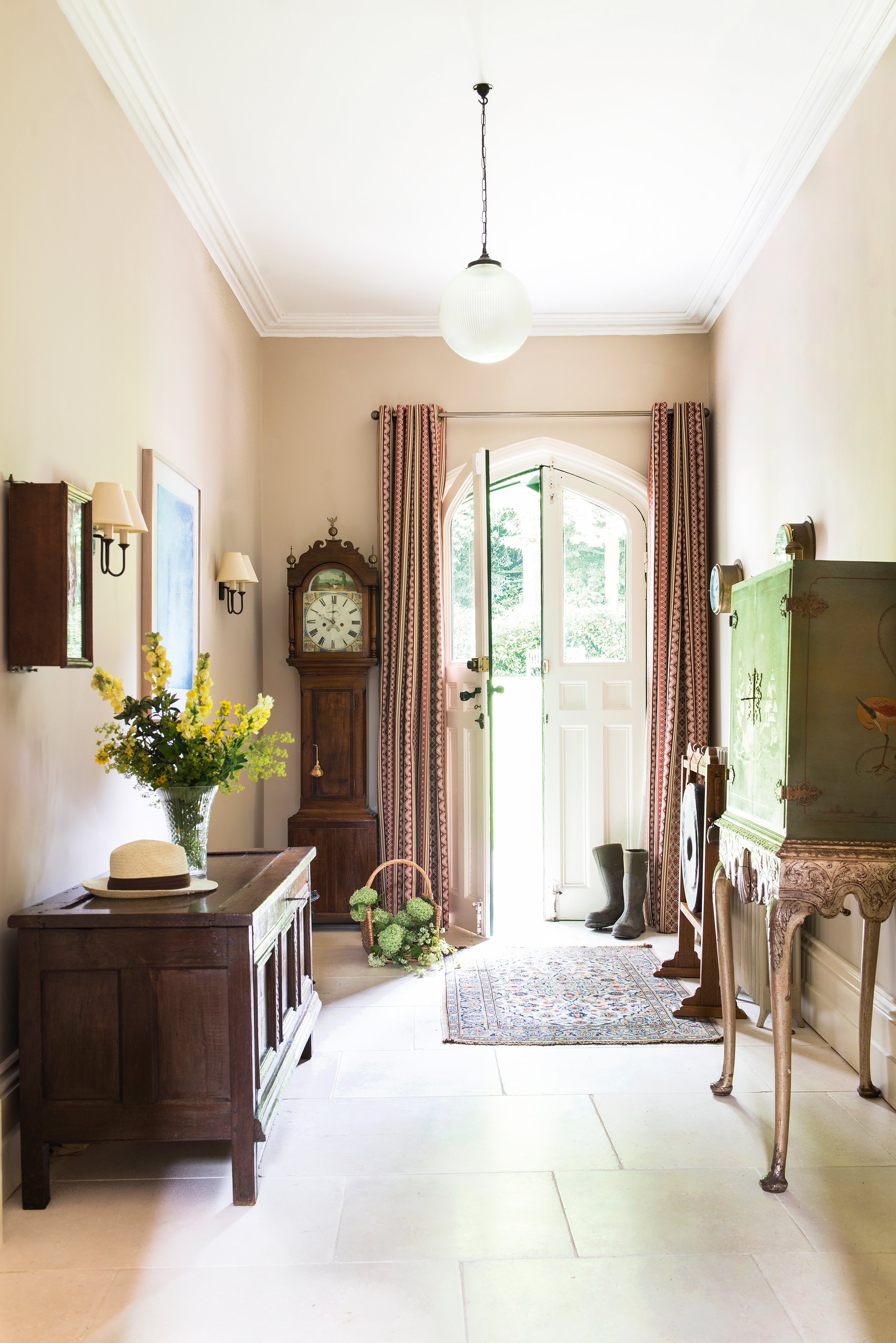
Why?
The hallway is probably the most important space in the house according to Feng Shui, and the front door is the most important place of all. Known as the 'mouth of Chi', the door is what allows positive energy and opportunity to flow into your home.
How?
Ideally, you should always be able to see the door from your study space, kitchen, or living room. If you cannot see the door for structural reasons, position a hallway mirror (see our pick of the best) in a way that will allow you to catch a glimpse of it.
Cluttered hallways, especially when the clutter blocks the front door, is a big no-no in Feng Shui. The door should always be able to open at least 90 degrees. Streamlined hallways with a minimum of furnishings are best. Or, good hallway storage ideas to hide away the clutter.
5. Feng Shui bedroom tips: relax and become more grounded
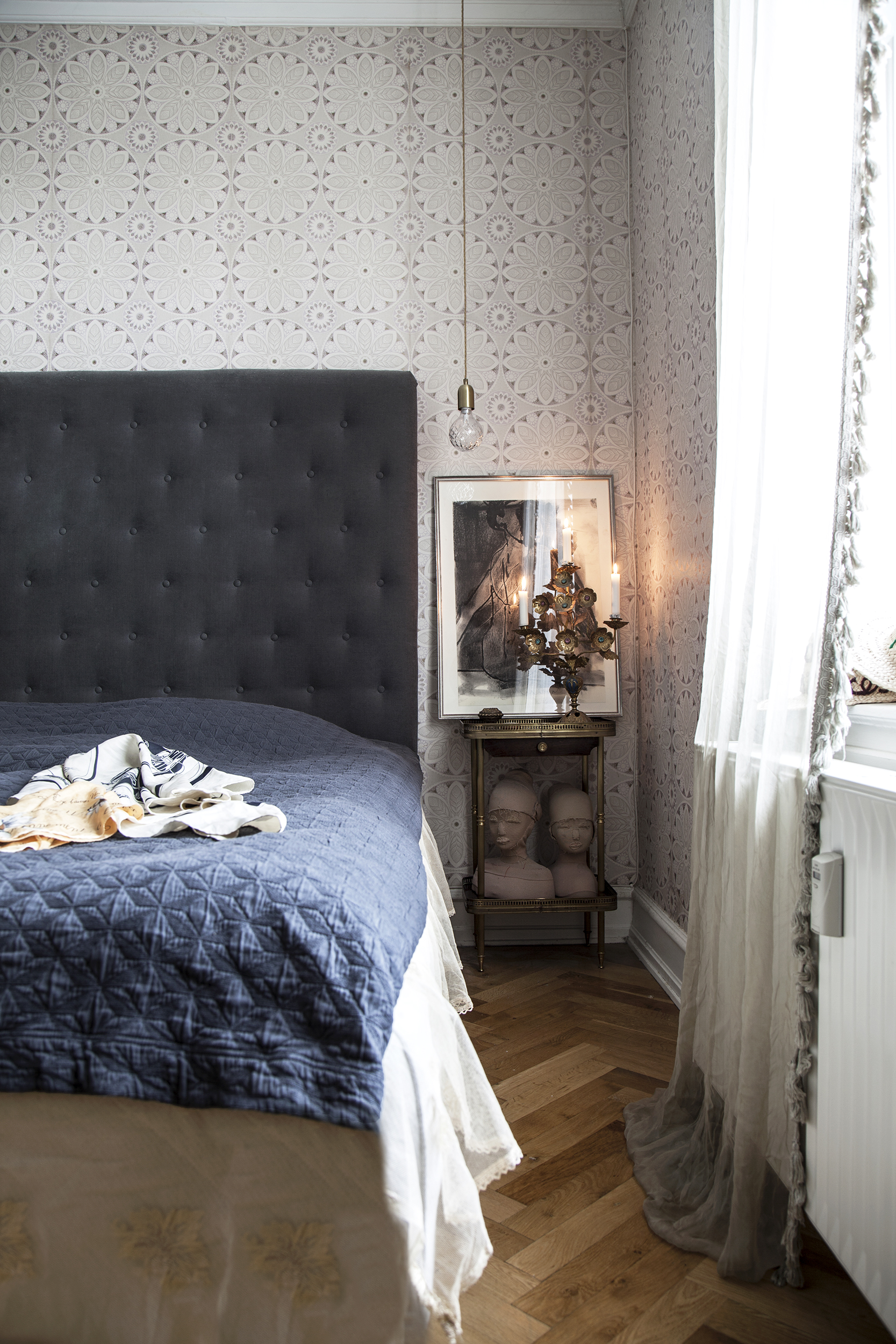
Why?
The bedroom is the room that's most closely identified with you, and is the place where you relax and mend any problems in your life.
How?
Always position your bed facing the door, as this position is believed to command the flow of positive energy towards you. Colour and material are important elements of bedroom design: if you feel destabilised, or your relationship is suffering, choose furniture made from dark, solid wood. Headboards are also highly auspicious and promote feeling grounded and sound sleep.
Feng Shui maintains that the bed should always be positioned in a way that allows energy to circulate freely around it, with nothing blocking either the sides or the space underneath. If you live in a small space and really need to utilise the space under the bed, make sure you only store soft things under it, such as spare duvets and bed linen (er, we're thinking storage beds, people). Never store books, personal memorabilia, or trainers under your bed: these things are considered to be too active and will prevent you from relaxing. And, if you are single and looking for a partner, don't put your bed next to a wall, as you are symbolically blocking anyone from sleeping next to you.
For more practical tips, read our guide to how to design a bedroom.
6. Feng Shui kitchen tips: maximise prosperity
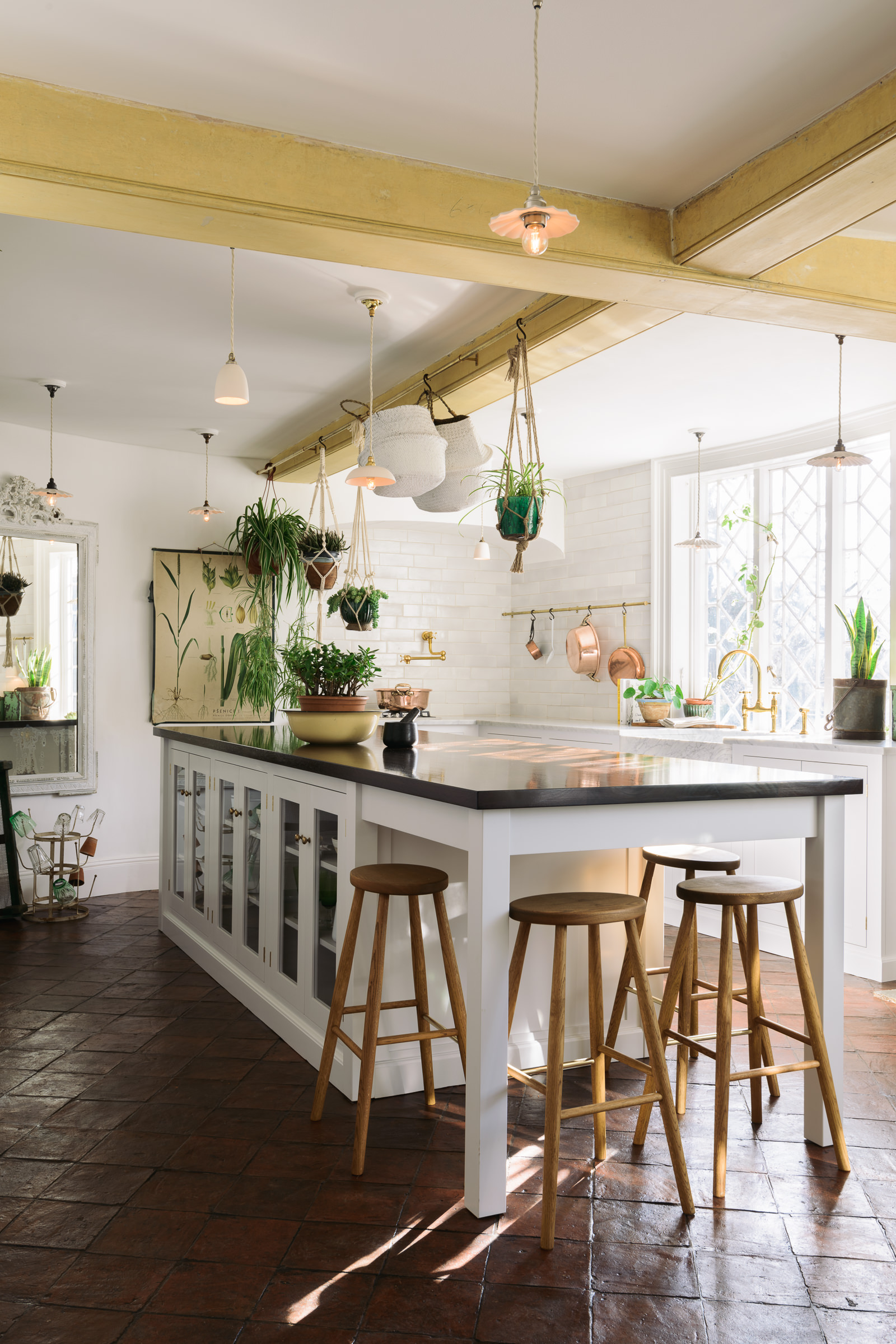
Why?
The kitchen symbolises a family's prosperity and wealth, so a spacious, well stocked kitchen with a very good stove is considered to be an important investment not only literally, but also for inviting even more prosperity into your home.
How?
Good flow is important, so try to arrange the elements of the kitchen so that you don't bump into corners all the time. It's also very bad Feng Shui to have the kitchen door face the bathroom door: these two rooms should be as far away from each other as possible, in fact. And the best Feng Shui kitchen colour? It's white.
Browse lots of white kitchen ideas in our gallery.
7. Feng Shui living room tips: invite in energy and positivity
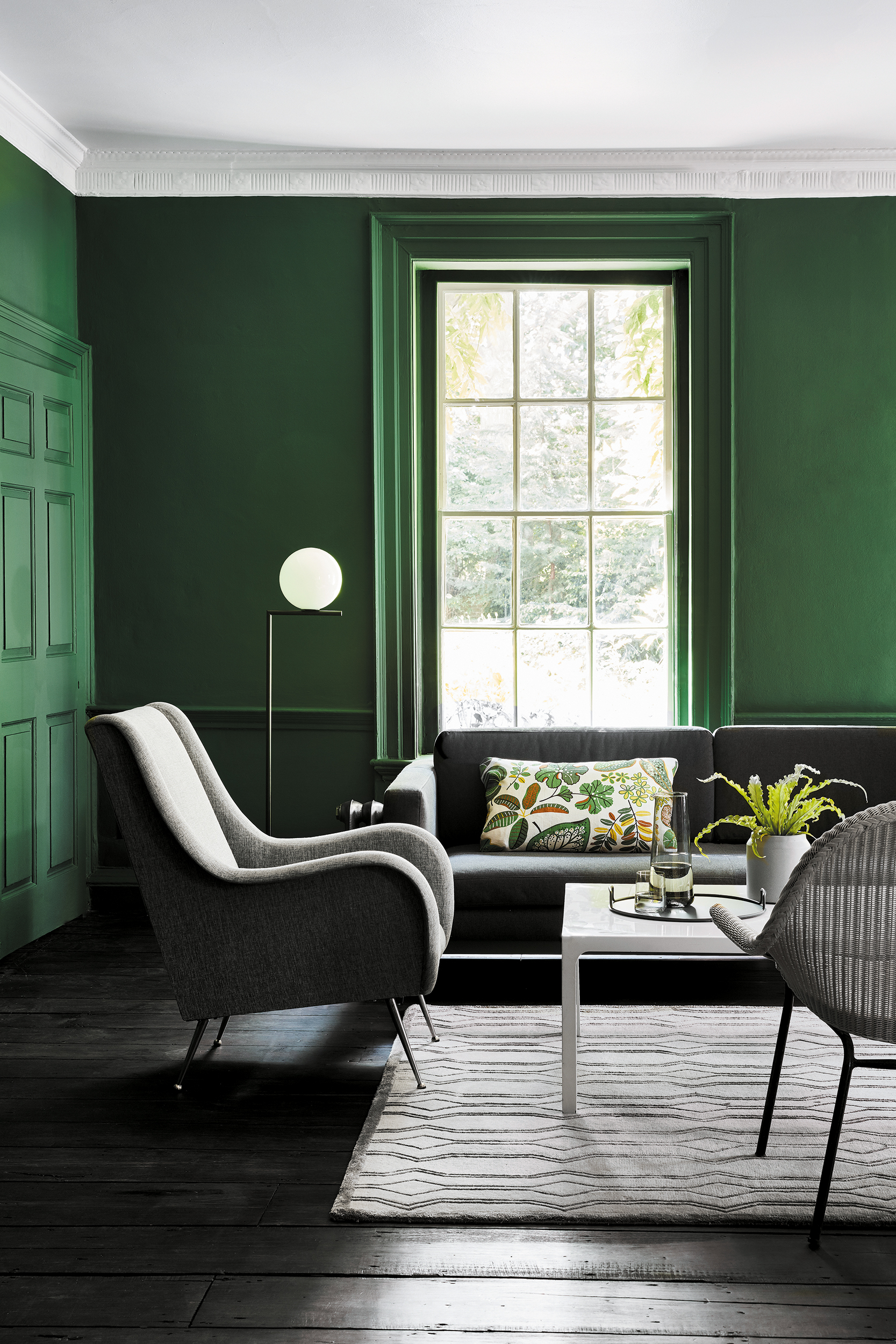
Why?
The living room is the room of the house that best reflects how much energy you have, and what might be holding you back.
How?
Creating a feeling of spaciousness and light is essential, so Feng Shui advocates against over-cluttering living rooms with furniture. If you feel the need for more energy, feel drained and low, choosing green furniture, especially a green sofa (see our pick of the best), or green paint for your living room is a good idea. Green is the colour of the Wood element in Feng Shui, and represents energy and life. Avoid hanging wall art too low, as this invites low energy levels (see our guide to find out how to get it right). Never keep any broken objects in your living room.
Browse our gallery of green living rooms in our gallery.
8. Feng Shui home office tips: concentrate and be productive
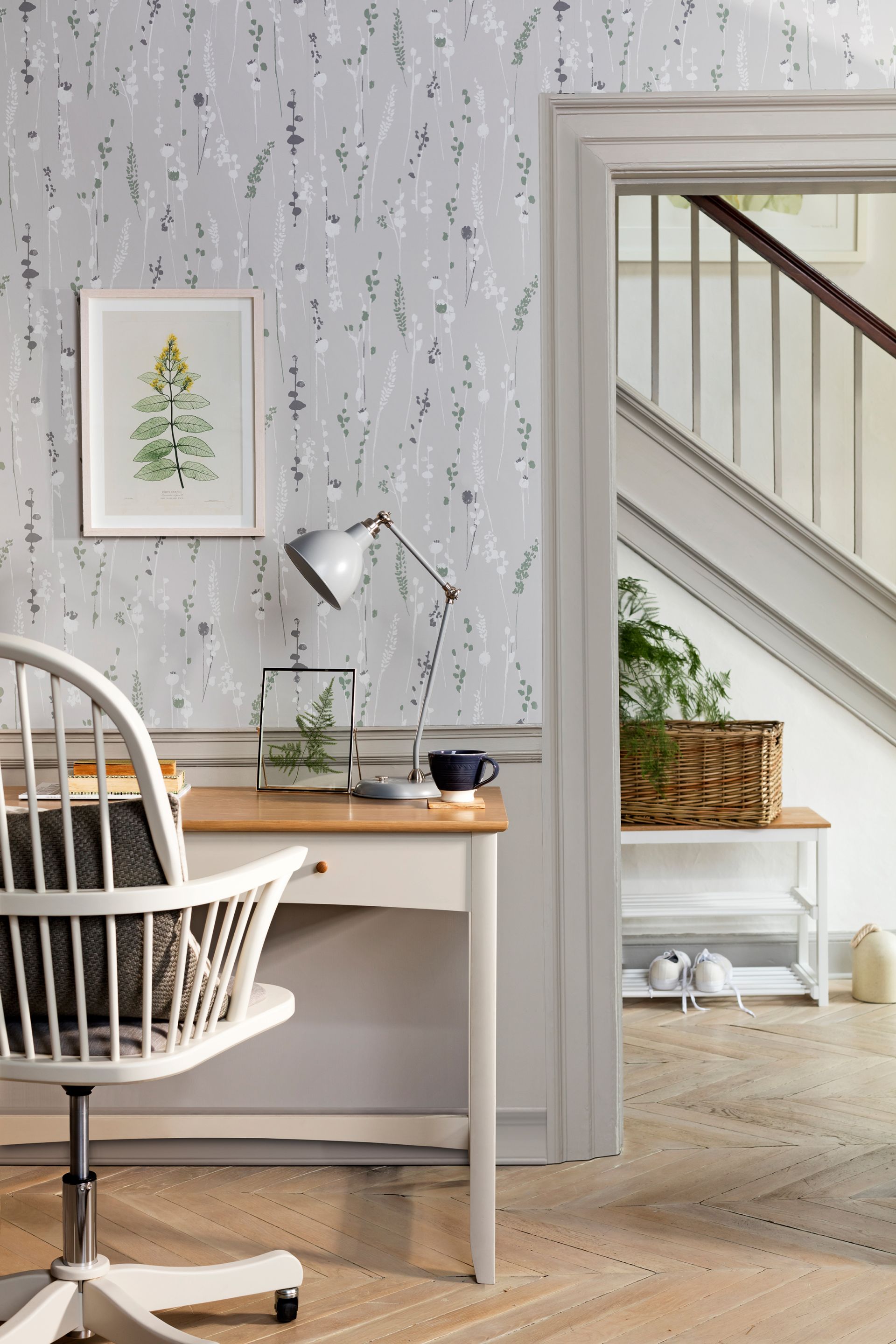
Why?
Everyone wants more productivity to happen in our home offices, and there's lots of advice on how to achieve.
How?
According to Feng Shui, the positioning of our desks is absolutely crucial to success: your back should never face the door. Colour is important too: if you feel you can't concentrate, try adding something made from metal, such as a metal memory board, or even paint a wall a silvery colour. Neutral and earthy tones (think browns and creams) are best in the home office if you are often stressed.
Check out our gallery of home office design ideas for more inspiration.
9. Feng Shui bathroom tips: de-stress and find wisdom
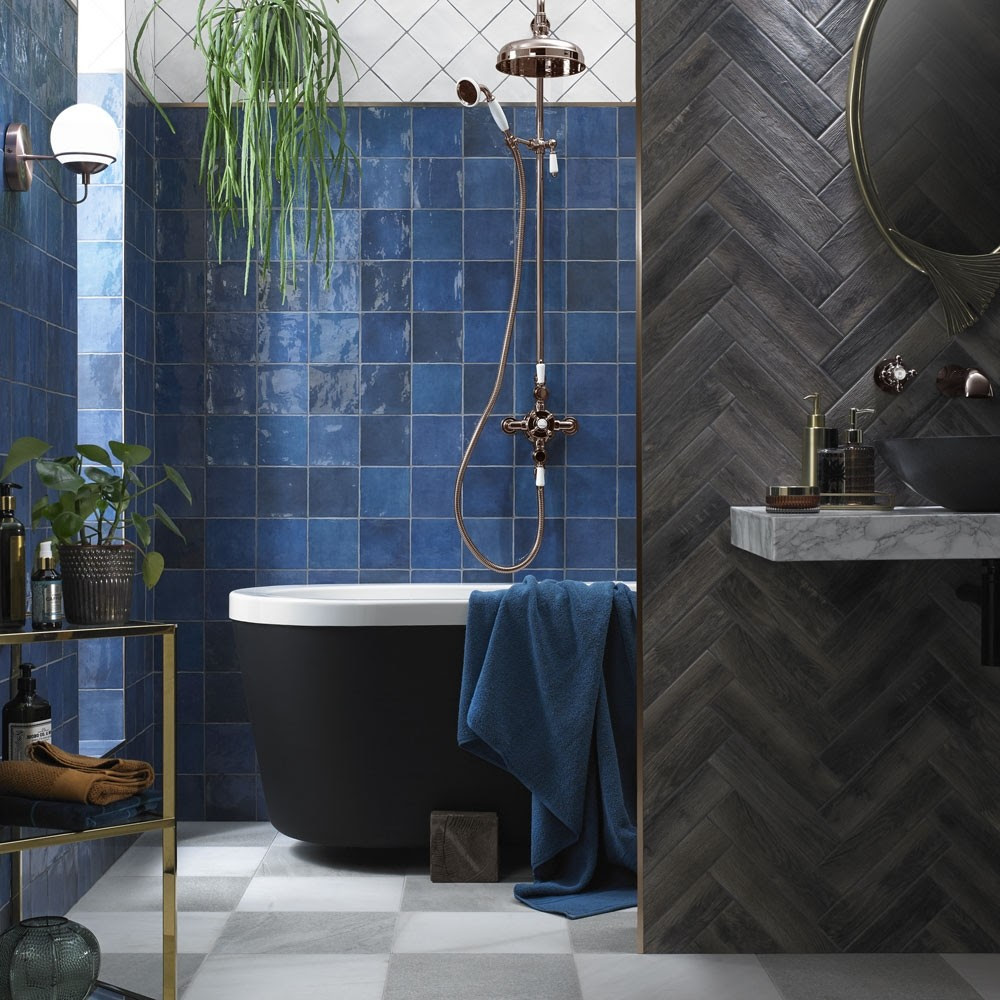
Why?
If you love thinking in the bath, there's a good reason for it: despite the somewhat unfortunate reputation bathrooms have in Feng Shui, there is a way to transform them into tranquil spaces where you can gain wisdom.
How?
In Feng Shui, the water element stands for wisdom and is represented by dark blue or black colours, so a black or blue tiled bathroom is highly auspicious. Make sure the toilet lid is always down and avoid hanging mirrors that reflect the toilet. Also, if at all possible, avoid positioning your bathroom at the centre of your home, as it will suck up all the good energy.
Take a look at our gallery of black bathrooms.
10. Feng Shui decluttering: how to do it right
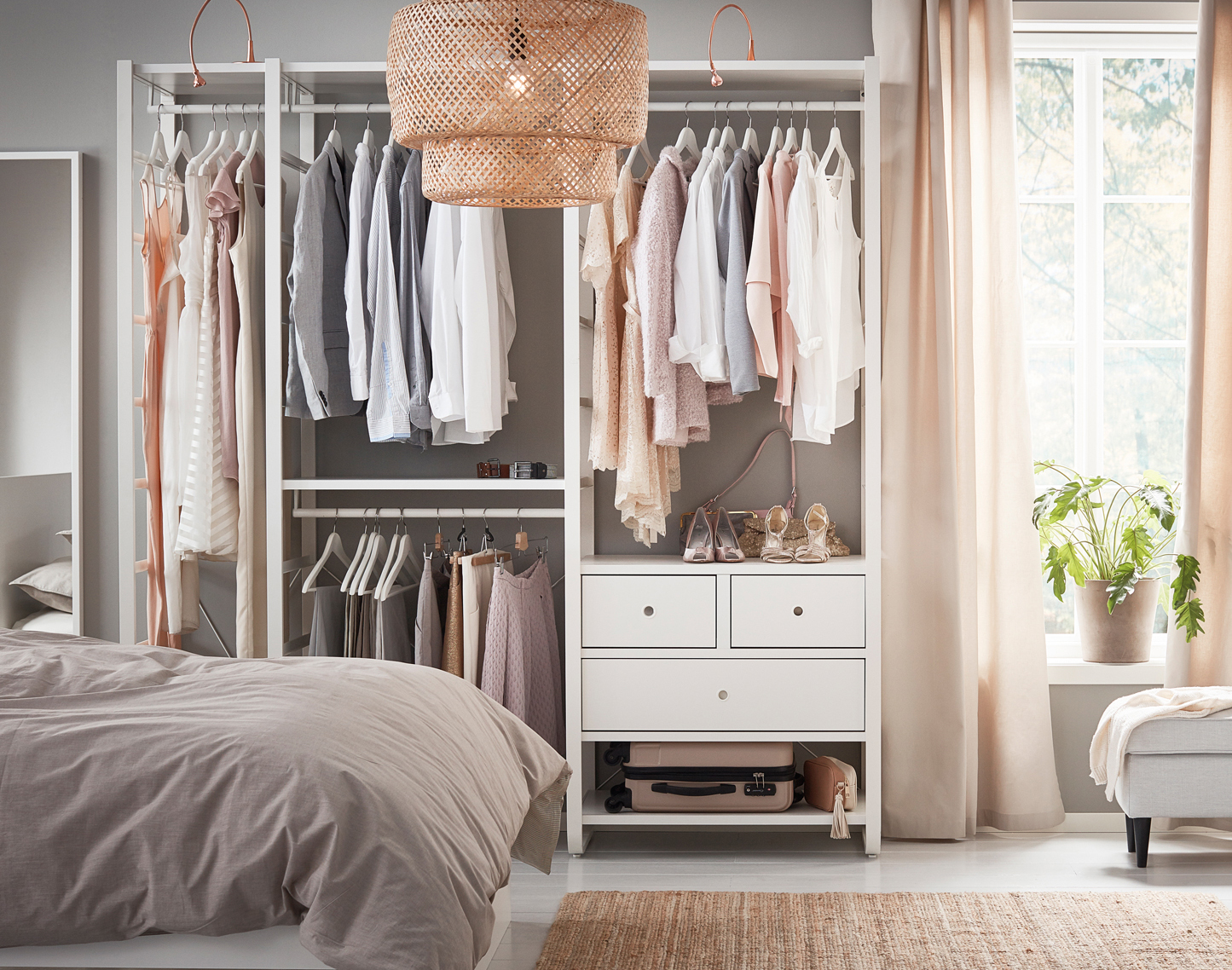
Why?
Decluttering is a big part of having good Feng Shui in your home. And we're big fans of that.
How?
We've already mentioned getting rid of broken objects. It's also important not to have dusty corners: dust is a physical manifestation of stagnation, so a room with lots of dust in it suggests that this part of your life is being neglected.
In Feng Shui, it's also important to have wardrobes that 'breathe': if your wardrobe is completely full of clothes, it's as though you are saying that your life is completely full, with no space for new things or experiences.
We have lots of tips on decluttering your wardrobe in our guide.
Want more lifestyle and home tips?
Get small space home decor ideas, celeb inspiration, DIY tips and more, straight to your inbox!
Anna is a professional writer with many years of experience. She has a passion for contemporary home decor and gardening. She covers a range of topics, from practical advice to interior and garden design.